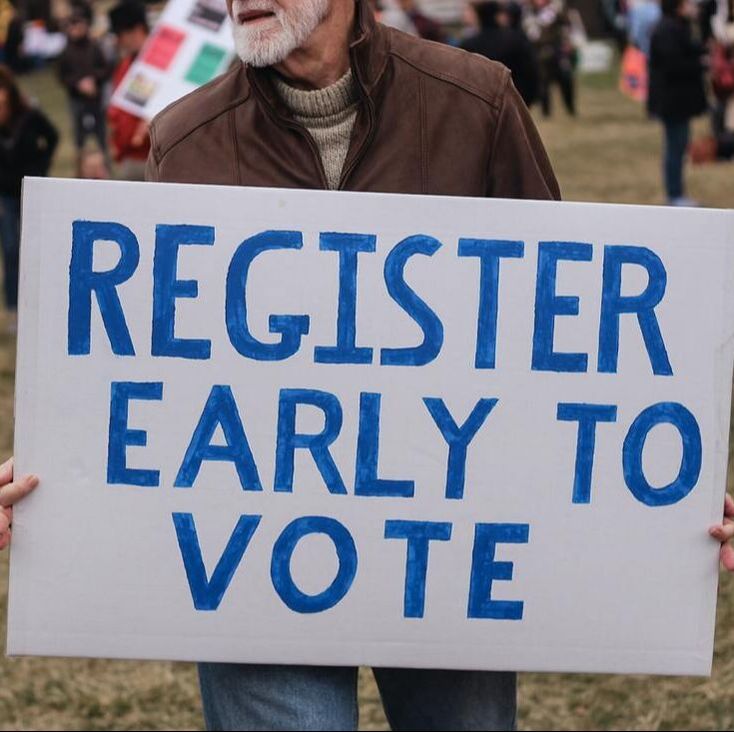|
As we approach the 2020 election, maybe you'd like to up your activism efforts. You may have noticed that sometimes ADHD and activism don't mix. For example, you are often asked to simply, "pick up the phone and call your representative." But this action is far from simple for someone with ADHD. It would require finding your representative, obtaining their contact information, carving out time to reach out to them, and then, the most difficult step of all, call them on the phone. What may take a neurotypical activist five minutes and trigger no stress response, would be an entire afternoon filled with stress for someone with ADHD. What if you want to make change, but find yourself paralyzed when it comes to the action steps. Let’s remember the 5 things that activate people with ADHD: 1. Interest 2. Challenge 3. Passion 4. Novelty 5. Deadline Activism may be one of your interests and passions, it is certainly challenging, and may be new to you...but usually there is no hard deadline. This is likely why it gets put in the "later" category and as you deal with the other 'to dos' in life. So how do we move from idea to action? 1. Take an inventory of your interests. What gets your blood pumping. The environment? Anti-racism? Voting rights? Homelessness? Mental health? There are so many problems in the world, limiting ourselves to one or two issues is challenging for everyone, especially those with ADHD. The smaller our scope, the bigger impact we can make by choosing one issue and puting all of our energy toward it. Start by identifying your core issue and then imagine ways in which you can help. If you choose the environment, could you get involved with a group that works to elect politicians who advocate for sustainability, cleans trash from waterways, or promotes recycling? Don't try to reinvent the wheel. There are likely already people doing the work, which makes starting easier. 2. Start small and work your way up. People with ADHD often have a more limited capacity to what they can fit in a day, so it is best to start with the smallest task possible. Notice if the small task causes too much stress before you add on. There are websites where with just a few clicks of the mouse you can do some good. The website Greater Good has a "Click to Give" program where you are sent a daily reminder to click on their website, which allows you to provide a free donation to the cause of the day. Free Rice and Free Kibble are websites that allow you to fight hunger and provide food for shelter pets, respectively, by answering trivia questions. Spreading awareness about your cause on social media is another small place to start. Social media trends and hashtags drive the conversation. Political campaigns urge you to have conversations with your friends and relatives and posting on social media is one way to start the conversation. Another small way to engage in activism is to sign petitions. You may see these petitions come across your social media feed. Research the platform where the petition originates to determine if it is safe to add your information. The platform change.org is generally safe, while other lesser known sites should be vetted. Move from these smaller actions to slightly bigger ones, like joining an online group for the cause you are interested in or going to a one time event. 3. Be aware of what triggers your Rejection Sensitivity Dysphoria (RSD). If the only opportunities for activism come with a high probability of rejections, you may avoid any action at all. Actions that may trigger your RSD are phone banking and canvassing. Being hung up on or a door closing in your face may feel personal. If you want to engage in phone banking or canvassing, practice positive self-talk beforehand. Remind yourself that it is not personal and that these forms of activism are cornerstones of our democracy. Awkward interactions are just that, they are not life threatening and are inevitable. Sometimes we need to push the edges of RSD to gain evidence that small rejections are not as bad as you have built it up to be, but if that doesn’t feel possible consider options that avoid triggering RSD: donating, signing petitions, sending texts and emails, or attending a protest. 4. Create systems for activism. Living with ADHD is all about experimenting with different systems until you find the ones that work for you. ADHD and activism is no different. If you want to be an activist, you will need a system. Consider creating a document with all the contact information for your local, state, and National representatives for where you live. That way you don’t have to look up the information every time you want to reach out to them to voice a concern. Sign up for the email newsletter from an organization that you care about. This is a good way to stay up to date about opportunities and keep activism in front of mind. Consider recurring events, such as volunteering once a month on the same day every month or choose an hour or two the same time every week for a week for activism. 5. Enlist others to join you. If you notice you are having difficulty moving from ideas to action, enlist social support. Having ADHD sometimes requires backup in order to cross the finish line. Ask a friend to volunteer at the food bank with you or schedule a time when you both can write postcards or send texts together, even if you live in different places. Just knowing there is someone out there working with you will help fuel your motivation. Talk to your friends and family about the activism you are doing. This provides accountability and motivation to continue the work. 6. Make sure you are registered to vote. Above all, our most important form of activism is voting. Select times of year, you have the opportunity to vote for elected officials who will represent your values and beliefs. There are often barriers to register and stay registered to vote. When people with ADHD are faced with a complicated, multi-step process, they often give up before completing the task. Overcome these barriers by giving yourself plenty of time to complete the task, reminding yourself of the importance of registering to vote or voting, and enlisting support if you hit a roadblock. You can register to vote or verify your voting registration at vote.org. Once you verify your voting registration, make a plan to vote. Use the same process you used to get registered. Your voice matters. Making change isn’t easy for people with ADHD, but with a few tweaks you can make a big impact. "If things are wrong and there is a lack of justice and an inequality, someone needs to say something and why can't it be you?" - Megan Markle
0 Comments
|
WelcomeI'm Kerry (She/Her/Hers) and I am a licensed therapist, group facilitator, poet, writer, & speaker. This is a place to acknowledge and validate our suffering and trauma, while also learning how to turn toward aliveness and spaciousness. Categories
All
Archives
April 2024
|
|
Copyright © 2024 Kerry J Heckman All rights reserved. Disclaimer.
|
|




 RSS Feed
RSS Feed